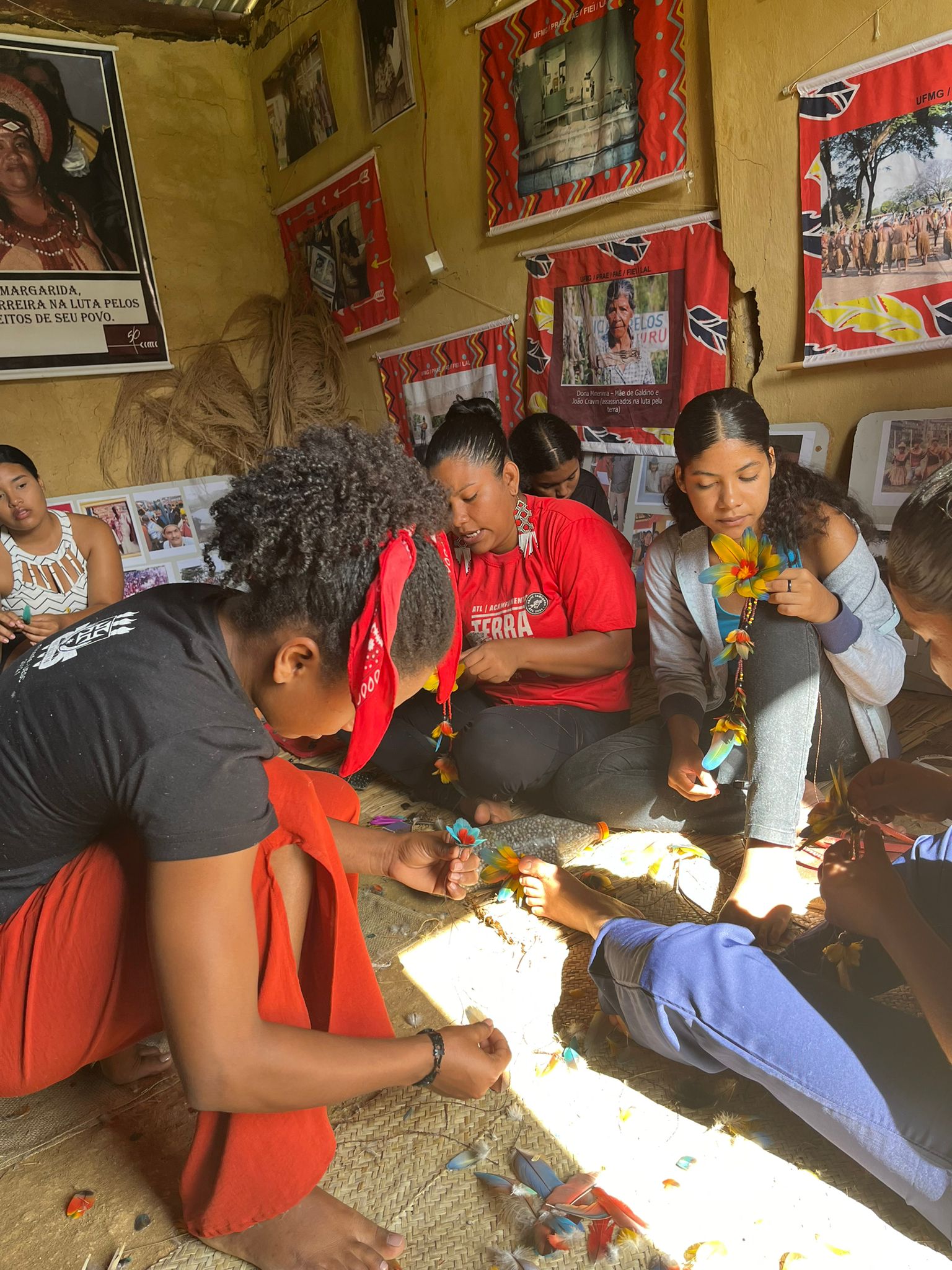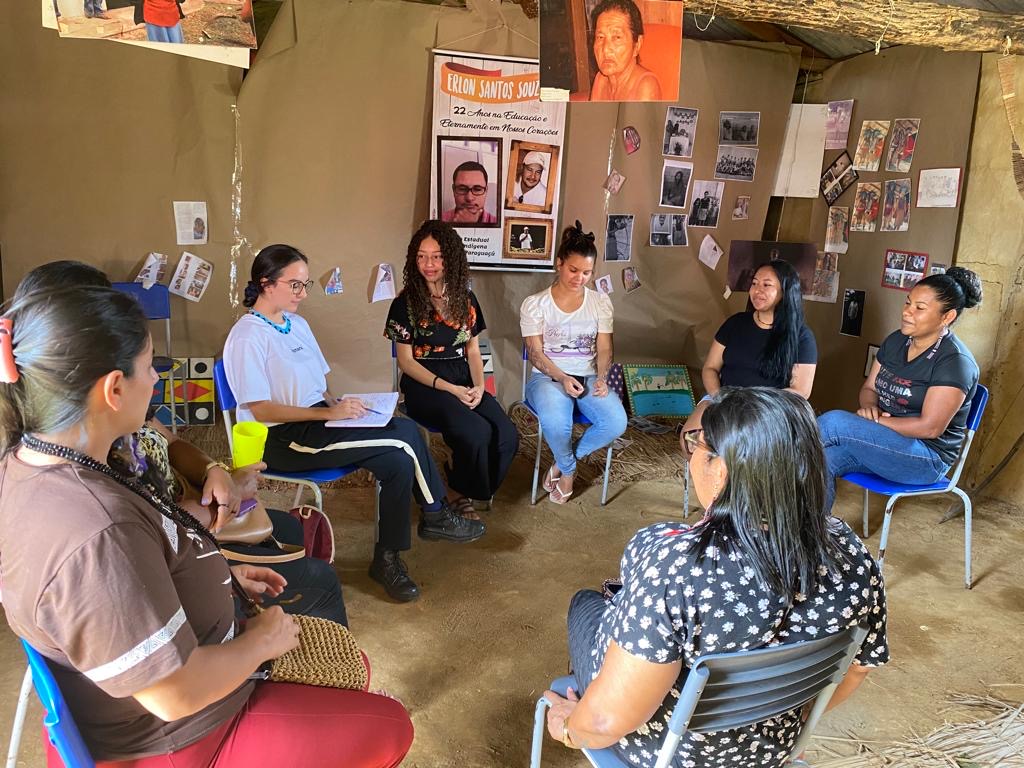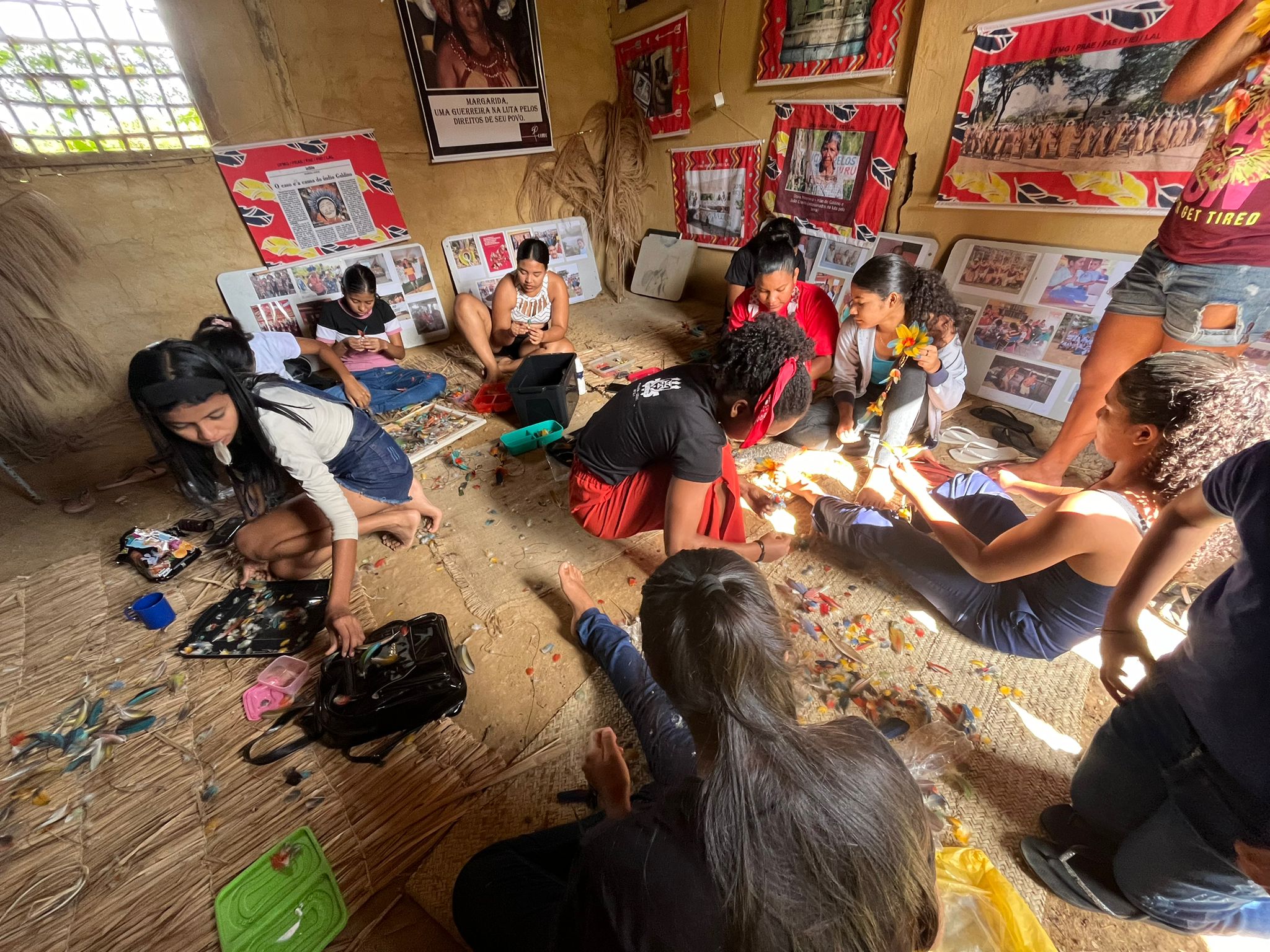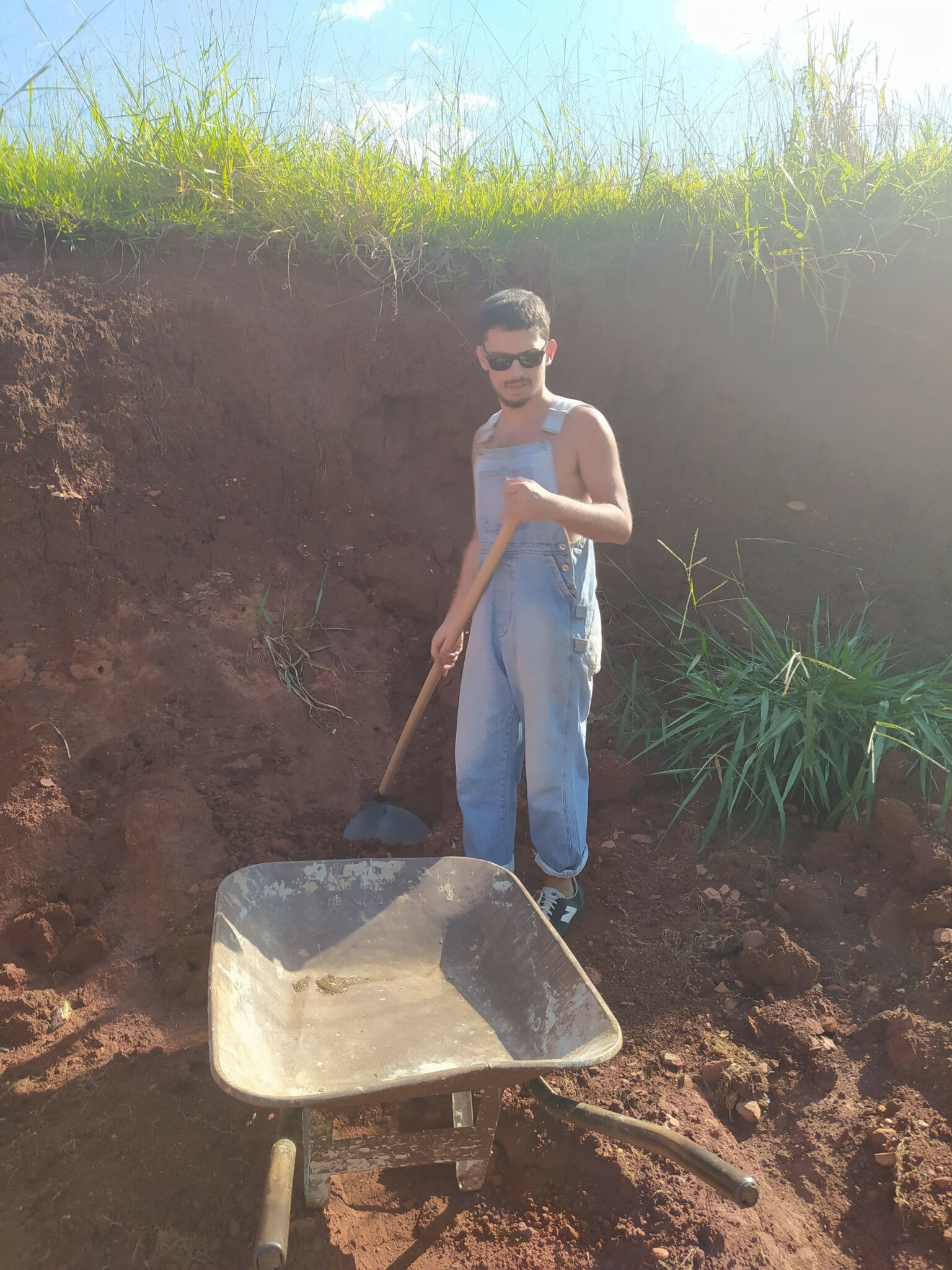We caught up with the brilliant and insightful Lucca Viersa a few weeks ago and have shared our conversation below.
Lucca, looking forward to hearing all of your stories today. One of the most important things small businesses can do, in our view, is to serve underserved communities that are ignored by giant corporations who often are just creating mass-market, one-size-fits-all solutions. Talk to us about how you serve an underserved community.
Yes, our business serves an underserved community in the interior of Brazil, where we focus on territorial development, primarily through the structuring of networks and cooperatives of local producers. Brazil is a country of multiple realities and challenges, with immense potential but also significant gaps in infrastructure, resources, and opportunities. Many rural communities in these regions are rich in culture, biodiversity, and ancestral knowledge, yet they often lack access to markets, fair pricing, and sustainable development tools.
One story that stands out is from a small community in the Cerrado biome, where local farmers were struggling to make a living due to the lack of organized markets and fair trade practices. Despite their deep connection to the land and their use of ancestral agricultural techniques, they were often exploited by middlemen and faced environmental degradation due to unsustainable practices. This not only threatened their livelihoods but also the preservation of their unique ecosystem.
Recognizing this, we worked closely with the community to establish a cooperative that empowered them to collectively market their products, access fair prices, and adopt sustainable practices. Through this initiative, they were able to preserve their traditional knowledge while integrating modern sustainable techniques, creating a model that balanced economic viability with environmental stewardship.
Recently, I partnered with a close friend and colleague to launch a fund called Bioma, which aims to finance sustainable projects that address social and environmental challenges in these underserved regions. Our goal is to create lasting impact by valuing local cultures, preserving the environment, and empowering communities through sustainable development. By investing in projects that combine ancestral technologies with innovative solutions, we hope to transform these realities and create a more equitable and sustainable future for all.
This work matters because it not only improves the quality of life for these communities but also preserves Brazil’s rich biodiversity and cultural heritage. By empowering local producers and fostering sustainable practices, we are helping to build resilient communities that can thrive while protecting the planet.

Great, appreciate you sharing that with us. Before we ask you to share more of your insights, can you take a moment to introduce yourself and how you got to where you are today to our readers.
I was born and raised in the interior of Brazil, in a family that always valued local traditions and social work. Growing up, I was deeply influenced by the importance of community, cultural heritage, and the need to create opportunities for those around us. However, I also had a strong desire to explore the world and understand its diversity. This led me to study International Relations and embark on a journey that took me across the globe.
During my travels, I became fascinated by the incredible diversity of people, experiences, and realities I encountered. I saw firsthand the different aspirations, challenges, and needs of communities worldwide. This inspired me to focus on creating something that could support local development in a sustainable way—helping people improve their conditions while valuing their own knowledge, traditions, and desires. I wanted to bridge the gap between global opportunities and local potential.
Over the years, I worked with various institutions, gaining experience in community development, sustainability, and social impact. These experiences shaped my understanding of the complexities of development and the importance of empowering communities to drive their own growth. Now, I’ve joined forces with Ana Marinho, my professional partner and a close friend, who shares a similar vision and journey. Ana brings a wealth of experience, having worked as a consultant for the World Bank and founded a non-governmental organization focused on gender equality. Together, we combine our expertise and passion to create meaningful change.
Our work focuses on territorial development, particularly in underserved regions of Brazil. We specialize in structuring networks and cooperatives of local producers, helping them access fair markets, adopt sustainable practices, and preserve their cultural and environmental heritage. We also recently launched Bioma, a fund dedicated to financing sustainable projects that address social and environmental challenges. Through Bioma, we aim to empower communities, preserve biodiversity, and promote innovative solutions that integrate ancestral knowledge with modern sustainability practices.
What sets us apart is our deep respect for local cultures and our commitment to co-creation. We don’t impose solutions; instead, we work alongside communities to develop strategies that align with their values and aspirations. We believe that true sustainability comes from empowering people to be the drivers of their own development.
I’m most proud of the tangible impact we’ve had on the lives of the communities we work with. Seeing local producers gain access to fair markets, witnessing the revival of ancestral practices, and observing the growth of sustainable livelihoods fills me with hope and motivation. I want potential clients, followers, and partners to know that our work is rooted in empathy, collaboration, and a genuine desire to create a more equitable and sustainable world. We’re not just building projects—we’re building futures.
Looking back, are there any resources you wish you knew about earlier in your creative journey?
Looking back, there are definitely resources and perspectives I wish I had known about earlier in my journey. Growing up, I, like many others, was influenced by media-driven ideas of success and life representation. These narratives often create a narrow definition of what it means to be successful, which can make it difficult to discover and embrace our own unique paths. It took me time to realize that true growth and fulfillment come from within—through self-discovery, experimentation, and reflection.
One of the key insights I wish I had earlier is that the “new” or the “innovative” isn’t about replicating someone else’s success but about uncovering what resonates with your own values, passions, and vision. This is especially important during university, which is such a rich and transformative stage of life. University is not just a place for academic learning; it’s a space for experimentation, building networks, and developing ideas. I wish I had fully embraced this mindset earlier, letting go of preconceived notions of success and instead using that time to explore, fail, and learn without fear.
In terms of resources, I wish I had access to more mentorship and guidance that emphasized self-discovery and authenticity over external validation. Tools like personal development workshops, reflective practices, and platforms that connect students with diverse role models could have been incredibly valuable. Additionally, I would have benefited from more exposure to interdisciplinary approaches and real-world projects that blend theory with practice, helping to bridge the gap between academia and the complexities of the real world.
Ultimately, I’ve learned that the journey is about creating your own definition of success and staying true to your values. For anyone starting out, I’d encourage them to use their time in university—or any early stage of their career—to experiment boldly, build meaningful connections, and reflect deeply on what truly matters to them. The path isn’t about following someone else’s footsteps but about carving your own, even if it’s unconventional or uncertain.

Is there a particular goal or mission driving your creative journey?
Yes, there is a clear mission driving my creative journey: to help create the “new” by starting from the local, working with local communities, and reinterpreting traditional and ancestral knowledge. I believe that this approach is key to building a world that is more just and sustainable—socially, ecologically, and economically. My work is centered on empowering communities to drive their own development while preserving their cultural heritage and natural resources.
At the heart of this mission is the belief that innovation and transformation emerge from spaces of encounter and exchange. It’s in these spaces—where diverse perspectives, traditions, and ideas come together—that truly impactful solutions are born. By fostering collaboration and co-creation, we can unlock the potential of local communities and create initiatives that are not only transformative but also deeply rooted in the values and wisdom of the people they serve.
This mission guides everything I do. Whether it’s structuring networks of local producers, launching sustainable projects through our fund Bioma, or collaborating with my partner Ana Marinho to address social and environmental challenges, the goal is always the same: to empower people, preserve ecosystems, and create opportunities that are equitable and sustainable.
What I’m most passionate about is seeing how these initiatives ripple out, creating positive change not just for individuals but for entire communities. It’s about more than just economic growth—it’s about building resilience, fostering pride in local traditions, and ensuring that development is inclusive and sustainable.
Ultimately, I want potential collaborators, followers, and supporters to know that my work is driven by a deep respect for local knowledge and a commitment to co-creation. I believe that by working together, we can create a future that honors the past, embraces the present, and builds a better world for generations to come.
Contact Info:

Image Credits
Credit: Ana Marinho
Activity developed by Fundo Bioma in an indigenous community in the state of Bahia, Brazil. The photo features local artisans and my partner, Ana Marinho, facilitator of this initiative.


